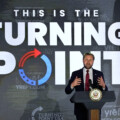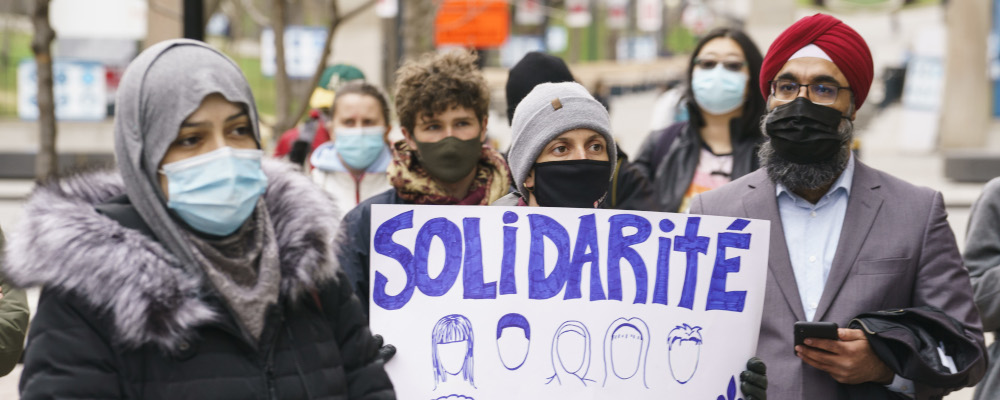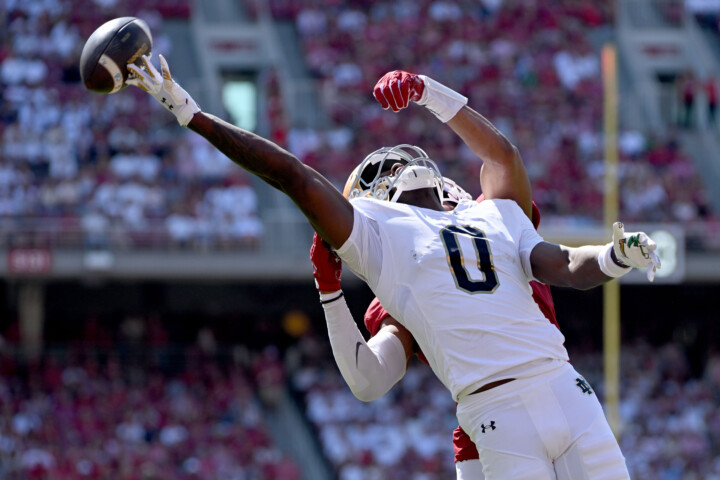Many contentious political issues have moral grey areas, but Quebec’s Bill 21 is just plain wrong. And while a lack of leadership at the federal level is a result of blatant political pandering to that vote-rich region, sometimes principles ought to come first.
Bill 21 has been defended in a number of ways, but a closer look reveals that none of these arguments hold water. Even worse, the bill represents the darkest side of democracy, something philosophers of all stripes have warned about for centuries.
The legislation, which was enacted in 2019, prohibits the wearing of religious symbols by certain members of Quebec’s public service, such as police officers and teachers. It is in the spotlight again after a recent hate-filled attack that killed multiple members of a Muslim family in London, Ontario.
It’s clear that this legislation is illiberal, pure and simple. It doesn’t just undermine religious freedoms but runs counter to the liberal democratic foundations of our society.
Quebec’s Premier François Legault has claimed that Bill 21 is vital to maintaining a secular province, drawing a false linkage between the worthy notion of separation of religion and state and the heavy-handed interference of the state in religious freedom. These are demonstrably different things and no serious person would conflate the two.
Defenders of the bill say it is not racist, since it applies to all religions equally. But what it means in practice is that the religious freedoms of certain cultural and racial groups are disproportionately impacted, such as Sikhs who wear turbans or Muslims who wear hijabs.
Others have suggested that Bill 21 “protects” women against what they see as religious oppression. But banning a woman’s right to wear a niqab, for example, is a very different thing than the very valid insistence on her right not to wear it. The latter argument is consistent with liberalism because it protects that woman’s rights, while the former argument is illiberal because it takes that woman’s rights away.
Perhaps most commonly, some defend the legislation based on the idea that it was passed democratically. However, this argument forgets the “liberal” in “liberal democracy.” For hundreds of years, political thinkers from Edmund Burke to Alexis de Tocqueville to John Stuart Mill have cautioned against the impacts of unchecked majoritarian decision-making on individual freedoms.
The danger presented by the “tyranny of the majority” is why the United States has its Bill of Rights and we in Canada have our Charter of Rights and Freedoms. These tools are in place specifically to protect the liberal component of liberal democracy. Those who use solely majoritarian decision-making processes to defend illiberal initiatives are treading on thin philosophical ice.
The second we start enabling governments to regulate acceptable religious attire, the whole exercise of the basic principle of religious freedom becomes subjective.
Quebec citizens and federal leaders of all parties ought to consider Edmund Burke’s commentary on the perils of unchecked democracy. As he put it, “in a democracy, the majority of the citizens is capable of exercising the most cruel oppressions upon the minority … and that oppression of the minority will extend to far greater numbers, and will be carried on with much greater fury, than can almost ever be apprehended from the dominion of a single sceptre.”
With this in mind, cultural and religious minorities are not the only ones who should be worried about this legislation. Anyone who believes in liberal democracy ought to vigorously oppose it, too.
I recently wrote a column about free speech in which I argued that the second we start drawing lines around acceptable thought, the whole exercise of free expression is at risk. I argued that in the absence of objective delineation between “good” and “bad” opinions, all we can rely on are subjective judgments.
The same argument applies to religious freedom. The second we start enabling governments to regulate acceptable religious attire, the whole exercise of the basic principle of religious freedom becomes subjective. Of course, as in the case of free speech, certain limits are acceptable. But any restrictions should be carefully considered and imposed only when necessary to protect liberal democratic values, not to weaken them.
In that same column, I wrote that true freedom of speech means we all need to get comfortable defending the expression of the very perspectives that make us most uncomfortable.
Again, the same argument can be made in the case of religious freedom. For example, some may feel very uncomfortable defending a teacher’s right to wear a niqab, but they need to consider the idea that the very same arguments they make against that woman’s religious choices could be made about their own religious choices in the future.
This isn’t just an issue of legitimized racism, nor is it merely a threat to religious freedom. It is an example of the worst of democracy, the manifestation of what philosophers from very different perspectives agree is one of its greatest flaws.
When leaders find reasons to take the “liberal” out of “liberal democracy,’ we should see it as the grave threat to freedom that it really is, no matter how they justify it.
Recommended for You

College football has a money problem

‘Uncertainty costs money’: Can Canada attract the investment needed to build major energy projects?

‘A populist, nationalist movement’: What is AmericaFest—and why should Canadians be paying attention?

Bondi Beach is a warning Canada cannot ignore





Comments (0)